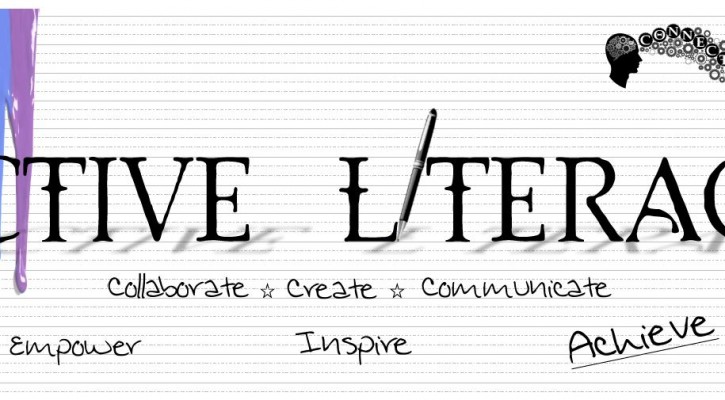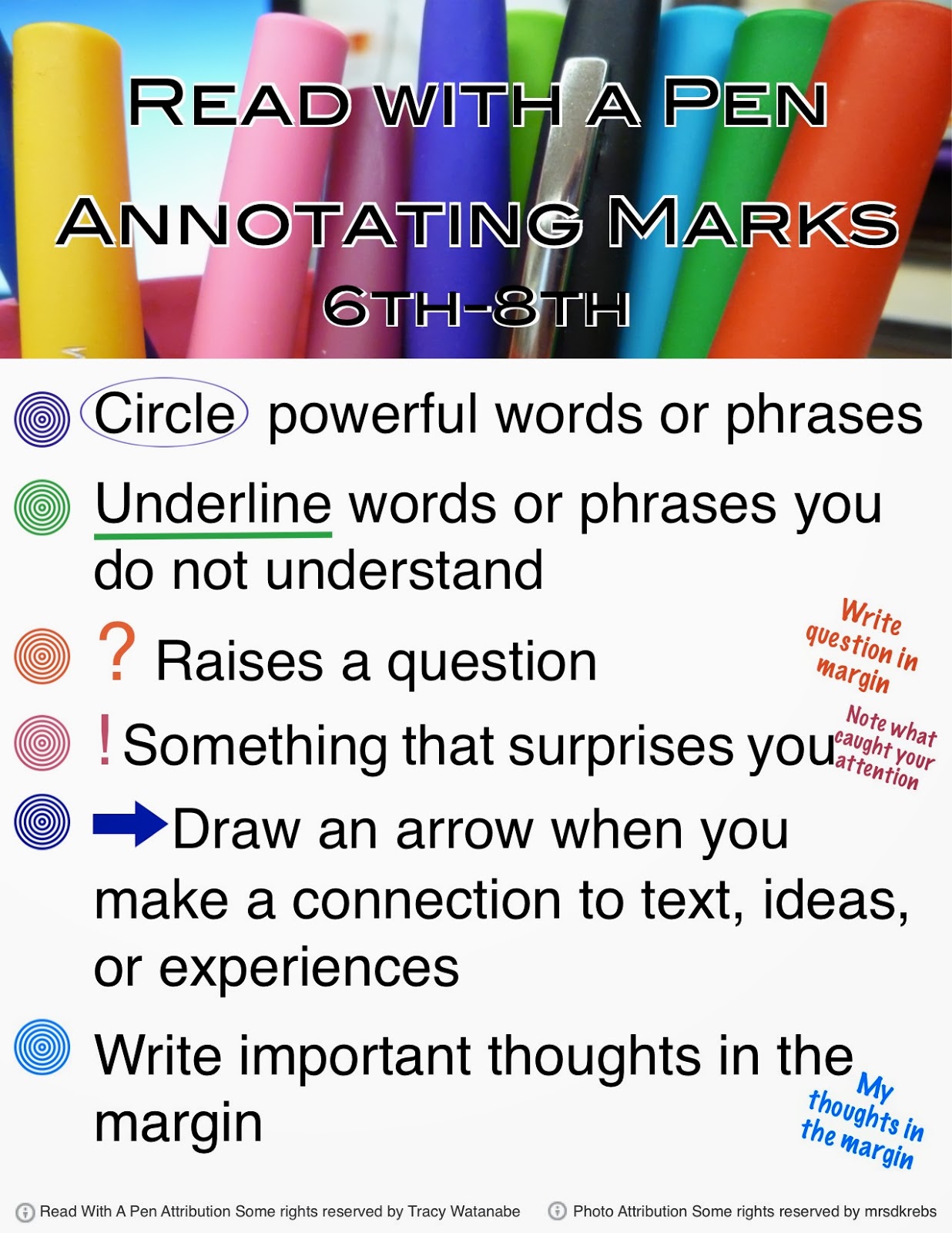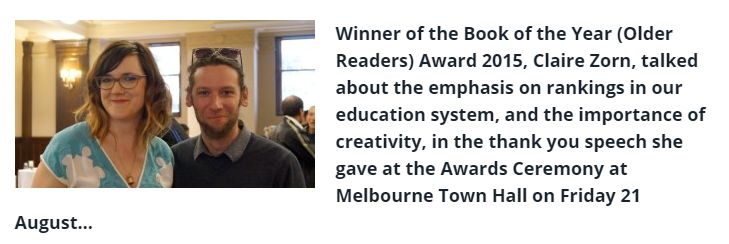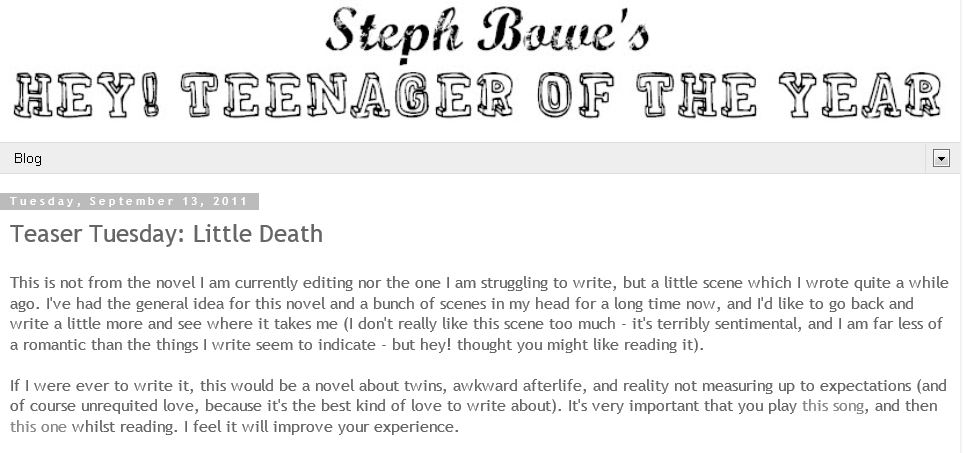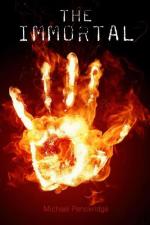Why read?
Reading is an essential life skill, but more than that, it is the ticket to success in life.
Every day we see that literacy is the catalyst for positive change. It allows individuals to develop their knowledge and potential, earn their livelihood, participate fully in their community and wider society, and enjoy continuous learning and the fullness it brings to their lives.
Source: http://www.literacyworldwide.org/get-involved

Active Literacy at Emerald Secondary College
Students are invited come along to a reading session in the library on a fortnightly basis. Students complete the following passports to develop their comprehension skills across fiction and non-fiction.
Section 1: Monitoring comprehension – The inner conversation
a Following the inner conversation
b Notice when we stray and how to fix it
c Knowing what you know and don’t know
d Noticing and exploring thinking
e Read, write and talk
ESC Library Active literacy continuum student book section 1
ESC Library Active literacy Teacher guide Section 1
Section 2: Activating and connecting to prior knowledge
a Beginning to make connections: It reminds me of…
b Text to self-connections: Relating the characters to ourselves
c Distracting connections
d Text-to-text connections: finding common themes in author studies
e Noticing and thinking about new learning
f Rethinking misconceptions: New information changes thinking
ESC Library Active literacy continuum student book section 2
(Teacher guide to come)
Section 3: Questioning: The strategy that propels readers forward
a Share your questioning about your own reading
b The more we learn, the more we wonder
c Some questions are answered, others are not
d Gaining information through questioning: Thick and thin questions
e Reading with a question in mind
d Questioning that leads to inferential thinking
ESC Library Active literacy continuum student book section 3
(Teacher guide to come)
Section 4: Visualizing and inferring
a Visualizing from a vivid piece of text
b Creating mental images that go beyond visualizing
c Inferring the meaning of unfamiliar words
d Inferring with text clues
e Visualizing and Inferring to understand information
ESC Library Active literacy continuum student book section 4
(Teacher guide to come)
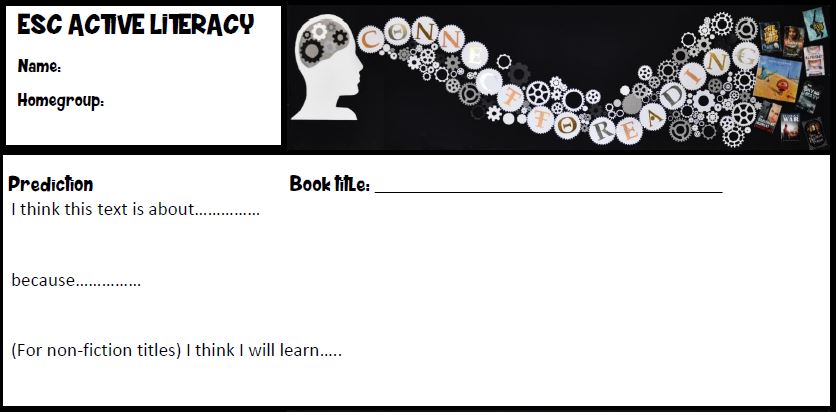
ESC Active Literacy Book mark – respond to reading with Reading comprehension strategies; prediction, clarify, question, summarise.
ESC Active Literacy bookmark
My grateful thanks go to the staff at Rowville Secondary College for sharing their resources which formed the basis for this program.
This program is adapted from the following resources:
Harvey, S., & Goudvis, A. (2000). Strategies that work: teaching comprehension to enhance understanding. York, Me.: Stenhouse Publishers.
Oczkus, L. D., & Pearson, P. D. (2010). Reciprocal teaching at work: powerful strategies and lessons for improving reading comprehension. (2nd ed.). Newark, Del.: International Reading Association.
Witter, M. (2012). Reading without limits: teaching strategies to build independent reading for life. Sydney: John Wiley and sons.
School Library Association of Victoria, (2014). Build community through reading. [online] Available at: http://slav.org.au/ [Accessed 20 Nov. 2014].
